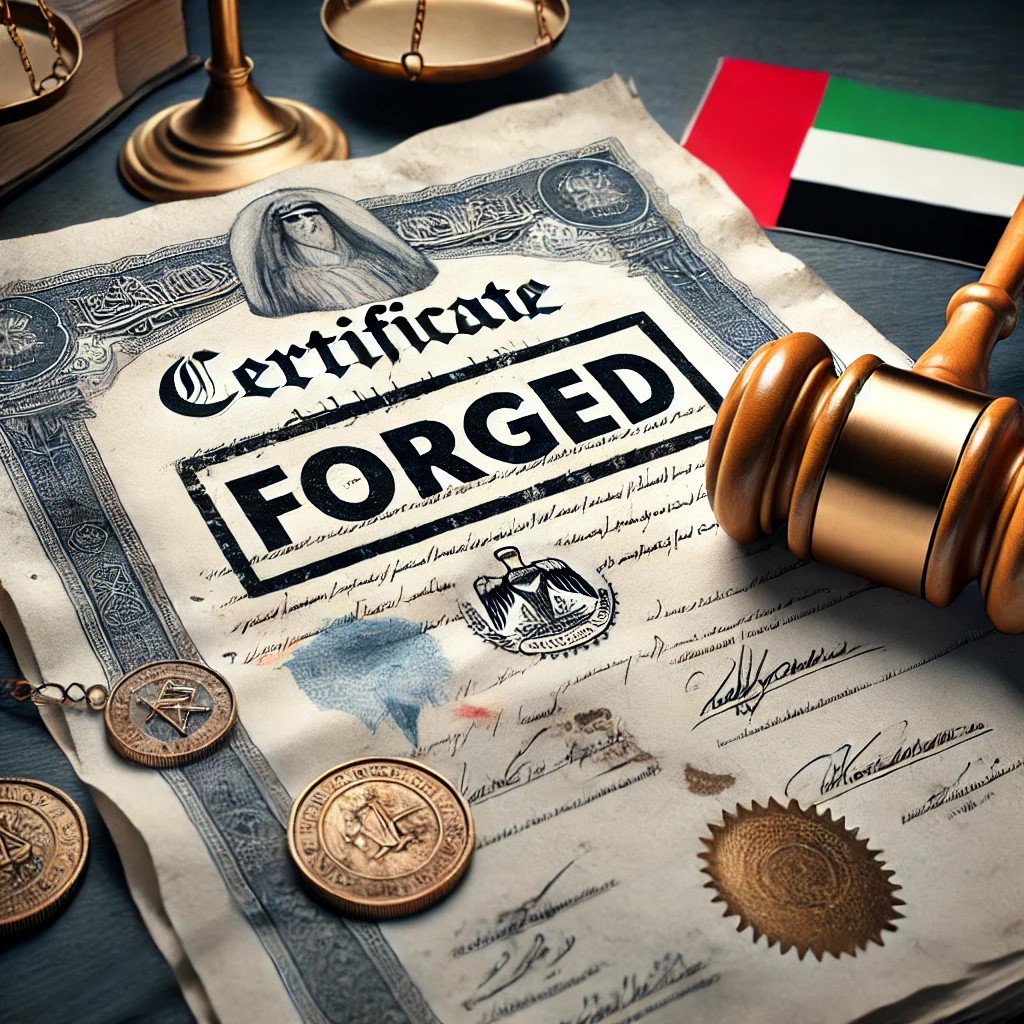
Forged Certificates in the UAE: Zero Tolerance, Serious Consequences
In
an era where professional qualifications play a pivotal role in career
advancement, the United Arab Emirates (UAE) has enacted stringent measures to
safeguard the authenticity of academic certificates and qualifications. Federal
Law No. 9/2021 stands as a cornerstone of this legal framework, ensuring that
only legitimate certificates are accepted for employment within the country.
This law reflects the UAE’s commitment to fostering a transparent and
trustworthy professional environment, penalizing both individuals and employers
who attempt to circumvent this integrity through the use of forged
certificates.
Under
this law, certificates used for employment must come from legally recognized
and licensed institutions. Individuals submitting fake certificates, whether
inadvertently or deliberately, face severe repercussions. Penalties range from
fines and imprisonment for unintentional submission, to harsher consequences
for those who knowingly submit or benefit from forged certificates. With fines
reaching up to AED 1,000,000 and imprisonment for up to two years, the law
sends a clear message that academic dishonesty will not be tolerated in the
UAE's labor market.
Employers,
too, are held accountable under this legislation. Companies, whether in the
public or private sector, must exercise due diligence in verifying the
legitimacy of the academic certificates their employees present. Failing to do
so risks not only financial penalties but also significant damage to the
company's reputation. By ensuring robust verification processes, organizations
protect themselves from being embroiled in legal battles and contribute to
maintaining ethical standards in the UAE’s professional landscape.
Additionally,
the law mandates that any benefits obtained through fraudulent means—whether
promotions, salary increments, or bonuses—must be returned to the employer.
This provision deters individuals from attempting to gain unfair advantages and
reinforces the UAE’s zero-tolerance approach to forgery. It also emphasizes the
moral responsibility of both employees and employers in upholding transparency
in professional engagements.
The UAE’s legal
framework extends beyond academic forgeries to address broader issues of
document falsification, including in the digital realm. With the increasing
reliance on electronic documents, laws such as the Federal Law No. 5 of 2012 on
Cybercrimes and the UAE Penal Code ensure that the authenticity of documents is
maintained across industries. Whether in real estate, finance, or government
sectors, the message is clear: forgery in any form is a serious offense, and
the UAE will continue to take decisive action to preserve the integrity of its
professional and academic systems.
